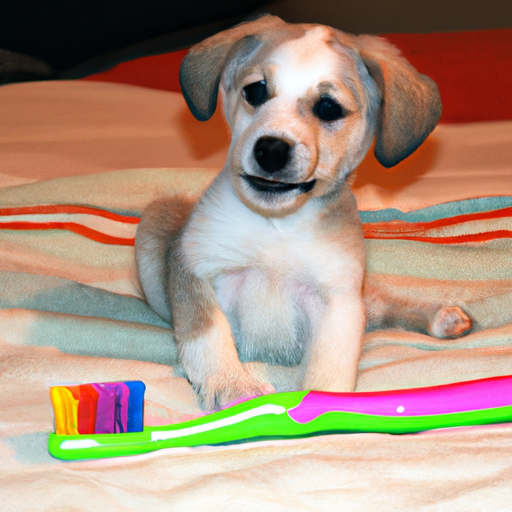As a caregiver to your new puppy, it’s essential to understand the stages of their dental development. This comprehensive guide will walk you through the timeline of when puppies typically get their teeth, what to expect, and how to best care for their oral health.
Understanding Your Puppy’s Dental Development
Just like humans, puppies go through two sets of teeth in their lifetime: the deciduous or “baby” teeth and the permanent or “adult” teeth.
- Deciduous Teeth: These are the first set of teeth that appear when your puppy is about 3 to 6 weeks old. They are 28 in number and are typically sharp and pointy.
- Permanent Teeth: These are the adult teeth that start to emerge around 3 to 7 months of age. By the time your puppy is 7 months old, they should have a full set of 42 teeth.
Signs Your Puppy Is Teething
Teething can be a challenging time for both you and your puppy. Here are some common signs to look out for:
- Increased chewing and biting
- Drooling
- Decreased appetite
- Swollen or red gums
- Visible teeth appearing
Managing Teething Pain
Teething can cause discomfort for your puppy. To help alleviate their pain, try the following:
- Provide chew toys: Chewing can help relieve the pressure from teething.
- Use frozen treats: The cold can help numb the pain and soothe the gums.
- Consult a vet: In severe cases, your vet may recommend certain medications.
Puppy Teeth Chart
Understanding the type of teeth and their function can help you better care for your puppy’s oral health. Here is a simple chart showing the types of teeth and their functions:
| Type of Teeth | Number in Deciduous Set | Number in Permanent Set | Function |
|---|---|---|---|
| Incisors | 6 | 12 | Used for nibbling and grooming |
| Canines | 2 | 4 | Used for tearing and holding onto things |
| Premolars | 6 | 16 | Used for grinding and chewing |
| Molars | 0 | 10 | Used for grinding and chewing |
Caring for Your Puppy’s Teeth
Maintaining good oral hygiene is crucial for your puppy’s overall health. Here are some ways to help care for their teeth:
- Regular brushing: Start a daily brushing routine using a soft-bristled toothbrush and dog-friendly toothpaste.
- Dental treats: These can help reduce plaque and tartar build-up.
- Regular vet check-ups: Your vet can spot early signs of dental issues.
Losing Puppy Teeth
Puppies typically start losing their deciduous teeth around 3 to 4 months of age. This process can take several weeks to complete. If you notice any teeth that are loose, resist the urge to pull them out. They will naturally fall out on their own.
FAQ
When should I start brushing my puppy’s teeth?
Start brushing your puppy’s teeth as soon as their first set of teeth emerge, usually around 3 to 4 weeks of age.
What should I do if my puppy is refusing to eat because of teething pain?
Try offering softer foods or soaking their dry kibble in water to soften it. If the refusal to eat persists, consult your vet immediately.
What should I do if my puppy swallowed a deciduous tooth?
In most cases, if a puppy swallows a baby tooth, it will pass through their system without causing any harm. However, if you notice any signs of discomfort or changes in their behavior, contact your vet.
How often should I take my puppy for dental check-ups?
It’s recommended to take your puppy for dental check-ups every six months. Regular check-ups can help detect any early signs of dental issues.
Remember, as a caregiver, your puppy depends on you for their well-being. By understanding when puppies get their teeth and how to care for them, you can ensure your furry friend grows up healthy and happy.



